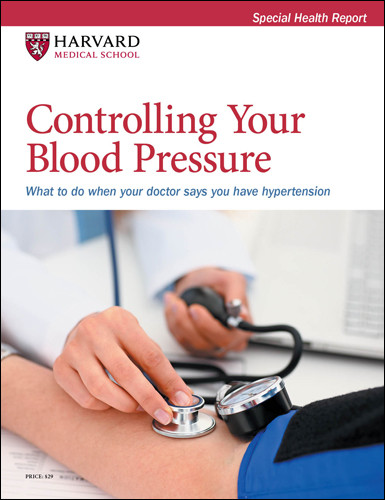Is it safe to stop aspirin a year after a stent?
Ask the doctor

Q. Since getting a stent last year, I have been taking aspirin and clopidogrel. Lately I've started getting minor bruises on my limbs. At my one-year follow-up, my cardiologist said I can stop the aspirin. Is that safe?
A. Yes, it's safe. Stopping aspirin a year after receiving a stent recently became standard practice. In fact, it actually may be safer than the previously recommended practice of stopping the clopidogrel rather than the aspirin.
When people receive stents (tiny metal mesh tubes that help open narrowed arteries), doctors routinely prescribe aspirin along with another medication that prevents clots. These drugs include clopidogrel (Plavix), prasugrel (Effient), and ticagrelor (Brilinta). Like aspirin, they prevent blood components called platelets from sticking together and forming clots. The formation of clots inside the stent — known as stent thrombosis — can lead to a heart attack.
The combination of aspirin and one of those stronger antiplatelet drugs is known as dual antiplatelet therapy (DAPT). The question of how long people should stay on DAPT has been a matter of debate for years. For people who get a stent for a heart attack, current guidelines suggest at least one year and sometimes longer for those at high risk.
But that assumes they don't develop any major bleeding complications, the main side effect of DAPT. Major bleeding includes heavy bleeding from the stomach, intestines, or bladder. Sometimes severe nosebleeds also occur. People who develop major bleeding may need to stop taking the drugs sooner. Rarely, bleeding occurs in the brain, a potentially debilitating or even fatal complication. Any of these episodes will lead your doctor to consider shortening the duration of DAPT. The bruising you're experiencing on your limbs is a sign of minor bleeding and will likely improve once you stop taking aspirin.
Aspirin can provoke bleeding in the stomach and intestines because it inhibits substances called prostaglandins that protect the stomach's delicate lining. Proton-pump inhibitors such as nonprescription omeprazole (Prilosec) or prescription-only pantoprazole (Protonix) may help reduce the risk of gastrointestinal bleeding.
Clopidogrel and the other drugs do not affect prostaglandins and therefore pose a lower risk of bleeding from the stomach. In several large trials, people on DAPT following a heart attack or stent placement were switched to either aspirin alone or to clopidogrel or ticagrelor alone. All groups had equal protection against recurrent heart attack, stroke, or stent thrombosis. But those taking clopidogrel or ticagrelor alone had lower rates of bleeding. As such, stopping aspirin is becoming the new approach to long-term antiplatelet treatment after the first year of DAPT. So rest assured that your doctor's advice makes good sense.
Image: © BakiBG/Getty Images
About the Author

Christopher P. Cannon, MD, Editor in Chief, Harvard Heart Letter; Editorial Advisory Board Member, �첩���� Publishing
Disclaimer:
As a service to our readers, �첩���� Publishing provides access to our library of archived content. Please note the date of last review or update on all articles.
No content on this site, regardless of date, should ever be used as a substitute for direct medical advice from your doctor or other qualified clinician.
















